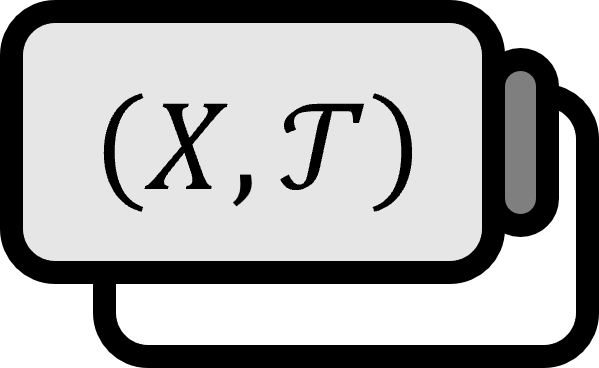In Hausdorff Spaces, Limits of Sequences Are Unique
Theorem
In a $T_{2}$-space, a sequence in $X$ does not converge to two or more distinct points.
Explanation
Is it really necessary to paradoxically emphasize the importance of the uniqueness of limits? The mere fact that this property exists is evidence that Hausdorff spaces are useful.
What needs attention is that there’s a slight difference from saying ‘it converges to a single point’. If one wishes to use that expression, it should be modified to say ‘if a sequence converges, it converges to only one point’.
Proof
Suppose that $\left\{ x_{n} \right\}$ converges to two different points $a,b \in X$.
Since $X$ is a $T_{2}$-space, there exists an open set $U, V \subset X$ satisfying $$ a \in U \\ b \in V \\ U \cap V = \emptyset $$ , then there exists $n_{1} , n_{2} \in \mathbb{N}$ satisfying $$ n \ge n_{1} \implies x_{n} \in U \\ n \ge n_{2} \implies x_{n} \in V $$ , but $$ n \ge \max \left\{ n_{1} , n_{2} \right\} \implies x_{n} \in U \cap V = \emptyset $$ , which is a contradiction.
■
